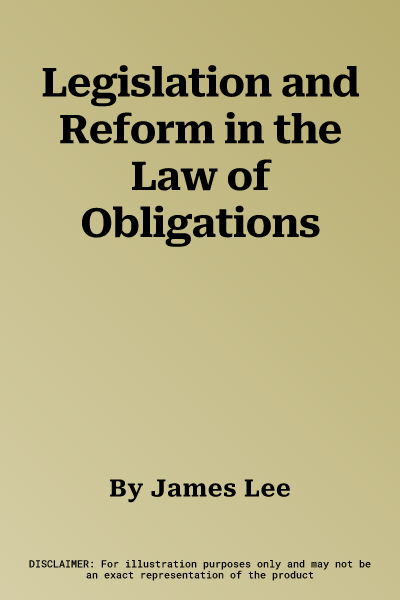This book presents a study of the ways in which legislation shapes and
develops the law of obligations in. The book addresses particular
questions such as the scope of purportedly exclusive legislative
schemes, incremental policy-based changes, when a change in the law of
obligations ought to be left to the legislature and the role of law
reform bodies. Recent jurisprudence of the leading courts on these
issues are scrutinised.
The author examines the implications for contract, tort and unjust
enrichment posed by the Brexit process, and the transition set out by
the European Union (Withdrawal) Act 2018. These areas of private law
have been affected by European legislation in numerous areas, for
example consumer protection, but the extent to which there will be
targeted reform is unclear.
Although the primary focus is on the law of England and Wales, the
argument also draws on the comparative experience of the Australian
States under the various Civil Liability Acts, contrasted with the more
incremental (but still problematic) legislative approach to tort in
England.
Developing a coherence-based approach, the book argues that the
processes of legislation ought to involve more faithful engagement with
the applicable principles than is often the case. A key theme is that
respect for coherence is not merely a matter of doctrinal purity, but
also translates into more effective legislation. This thesis is given
especial currency by the challenges of Brexit for English private law.

